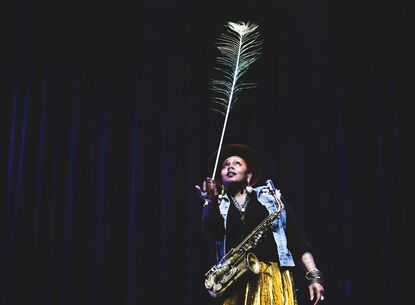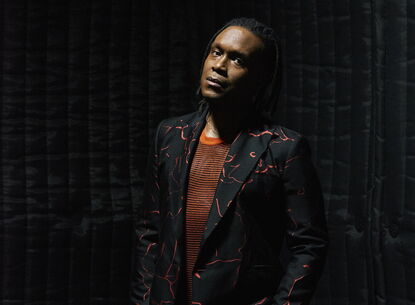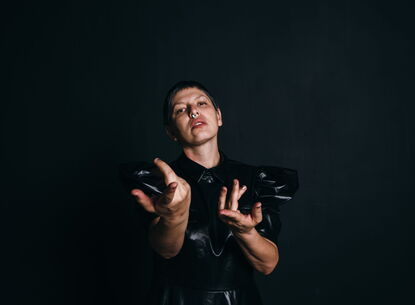The Words of Others: León Ferrari and Rhetoric in Times of War
about the artist
León Ferrari (Buenos Aires, 1920–2013) began his art career during the early 1950s, with works in plaster, ceramics, wood, and stainless steel wire. This process of experimentation continued into the following decade, expanding to include “written drawings” and abstract writing.
In 1963 references to the political situation began to appear in his work, as is the case in his series Cartas a un general (Letters to a general). He participated in the activities of the Instituto Torcuato Di Tella, an art center that was a focal point for Argentinean avant-garde artists during the 1960s in Buenos Aires; his piece La civilización occidental y cristiana (Western and Christian civilization) was removed from that institution’s prize show in 1965 because of its religious content. From that year onward, Ferrari focused solely on pieces with political content, which he showed in exhibitions such as Homenaje al Viet-Nam (Homage to Vietnam) in l966, Homenaje a Latinoamérica (Homage to Latin America) in 1967, Tucumán arde (Tucumán is burning) in 1968, Malvenido Rockefeller (Unwelcome Rockefeller) in 1969, and Contrasalón (Counter-salon) and Salón independiente (Independent salon), both in 1972. In 1967 he published his literary collage Palabras ajenas (The words of others) with Falbo. Leopoldo Maler produced the work for the stage in London the following year, with the title Listen, Here, Now, and it was staged again in late 1972 in Buenos Aires by Pedro Asquini, with the title Operativo: “Pacem in Terris” (Operation: “Pacem in Terris”). During the late 1960s Ferrari also began “Paulo VI y el Vietnam” (Paul VI and Vietnam), an unfinished book analyzing ties between the pope and the war in the Indochinese Peninsula. Ferrari would publish two more literary collages: La basílica (Basilica) in 1985 and Exégesis (Exegesis) in 1993. Following the coup d’tat in Argentina in 1976, Ferrari began to gather news items about repression under the military dictatorship, which would form material for the collage Nosotros no sabíamos (We did not know). That year he was forced into exile in São Paulo, where he resumed work on his metal sculptures and started experimenting with mail art, blueprints, videotexts, photocopies, and Letraset. In 1983 he revisited the theme of religion, producing hundreds of collages that combine Catholic iconography with erotic imagery from the Kama Sutra and contemporary photography. These pieces make up his series Relecturas de la Biblia (Rereadings of the Bible), which would continue over the years that followed. Ferrari returned to Buenos Aires definitively in the early 1990s. In 1995 he illustrated an edition of the book Nunca más (Never again), by the Comisión Nacional sobre la Desaparición de Personas, published by the newspapers Página 12 and Eudeba. In 2004 a retrospective of his work, curated by Andrea Giunta, was exhibited at the Centro Cultural Recoleta in Buenos Aires, provoking a strong negative reaction on the part of the Catholic Church. Works were destroyed, and the show was shut down, although it later reopened thanks to rulings from the Department of Justice.
In 2005 Ferrari published his collected political writings in Prosa política (Political prose). Two years later he was awarded the León de Oro at the Venice Biennale, and in 2012 he received the Diamond Konex Award in visual arts. In the early 2000s he participated in several exhibitions, such as León Ferrari: Obras, 1976–2008 at the Museo de Arte Carrillo Gil, Mexico City, in 2008; Tangled Alphabets at the Museum of Modern Art, New York, in 2009, together with the work of the Brazilian artist Mira Schendel; and Principio Potosí ¿Cómo podemos cantar el canto del Señor en tierra ajena?, an exhibition organized in 2010 by the Museo Nacional Centro de Arte Reina Sofía in Spain. He died in Buenos Aires in 2013. The Fundación Augusto y León Ferrari—created by the artist and his family in 2008—continues the legacy of León and Augusto Ferrari and cares for their works.



